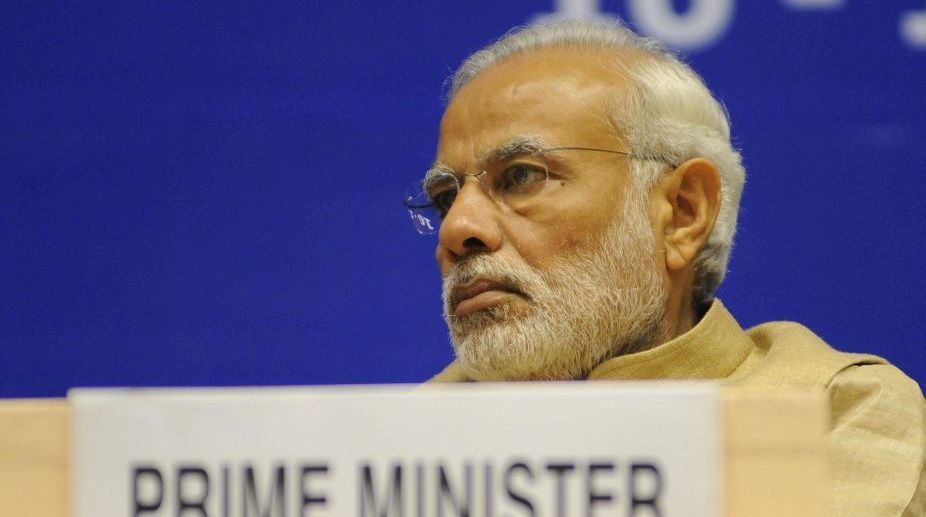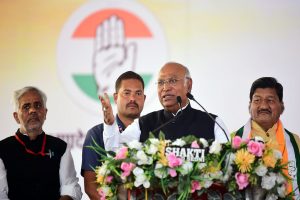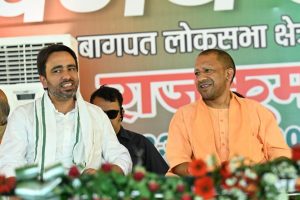The newly-constituted Economic Advisory Council to the Prime Minister (EAC-PM) held its first meeting here on Wednesday, deciding to focus on 10 areas of interest in a bid to rev up the slowing Indian economy.
This panel of economists and experts was recently set up by Prime Minister Narendra Modi in order to find ways and means to boost the country’s economic growth.
The areas flagged by the EAC-PM include economic growth, job creation, informal sector and integration, fiscal framework, monetary policy, public expenditure, institutions of economic governance, agriculture and animal husbandry, patterns of consumption and production, and social sector.
The panel also recognised the need for instituting an Economy Track Monitor, using lead indicators and triggers for action that would be based on informed assessment and analysis.
“There is a consensus among us about the various reasons that have contributed to the slowdown in the growth rate and the Council will provide specific recommendations that can be implemented in near term,” the EAC-PM’s chairman Bibek Debroy, Niti Aayog’s member, told a press briefing after the meeting.
There is a lot of concern about the economy today and the Council will “work as a sounding board of ideas”, the Council’s member Ashima Goyal said.
Debroy said the Council will again meet in November to discuss critical issues, with next year’s Budget in mind. “Next few months our focus will be on the preparation of the Budget,” he said, adding that their suggestions will be in “collaboration and consultation” with existing government bodies.
“Whenever we will take any view on monetary policy, we will discuss it with RBI. It is not our job to push those recommendations to the Finance Ministry, our job is to report to the Prime Minister,” Debroy said.
Asked whether the Council would give his earlier recommendation for levying taxes on agricultural income beyond a limit, Debroy side-stepped it, saying the panel’s recommendations will be meant for the PM.
Chief Economic Advisor (CEA) Arvind Subramanian made a presentation to the Council and focused attention on accelerating economic growth, including investments and exports, using a combination of different policy levers.
Another Council member Rathin Roy said that “the consensus is there is economic slowdown, we will examine its causes”.
To a query on job losses in the wake of demonetisation and implementation of the Goods and Services Tax (GST), Debroy said, “This issue was not examined in today’s meeting.”
He also alluded to the lack of adequate employment data to make any conclusive assessment of the job scenario in the country. “Whether we like it or not, we don’t have good data on employment and jobs,” he said.
The Council wants the Modi government to stick to its fiscal consolidation road map and has suggested that a stimulus to the industry should not be at the cost of fiscal prudence. The government pegged the fiscal deficit target at 3.2 per cent for the current fiscal and 3 per cent for the next financial year.
Rathin Roy dismissed lowering of India’s growth projections by the International Monetary Fund (IMF) and the World Bank, saying they often go “wrong”.
While the IMF has lowered India’s growth forecast for the current fiscal by 0.5 percentage points to 6.7 per cent, the World Bank has pegged economic expansion at 7 per cent, down from 7.2 per cent projected earlier. The RBI cut economic growth forecast to 6.7 per cent from earlier projection of 7.3 per cent.
There have been concerns about the state of the economy ever since the government data showed GDP growth in the first quarter of the current fiscal plummeting to a three-year low of 5.7 per cent, from 7.9 per cent in April-June 2016 and 6.1 per cent of January-March 2017. The country’s GDP growth has been dipping consistently for several quarters.
Roy, however, claimed : “IMF’s growth projections are 80 per cent wrong. World Bank’s growth projections are 65 per cent wrong.”











